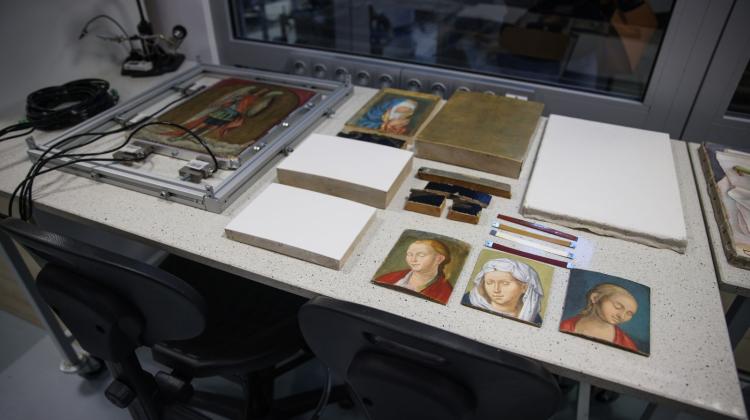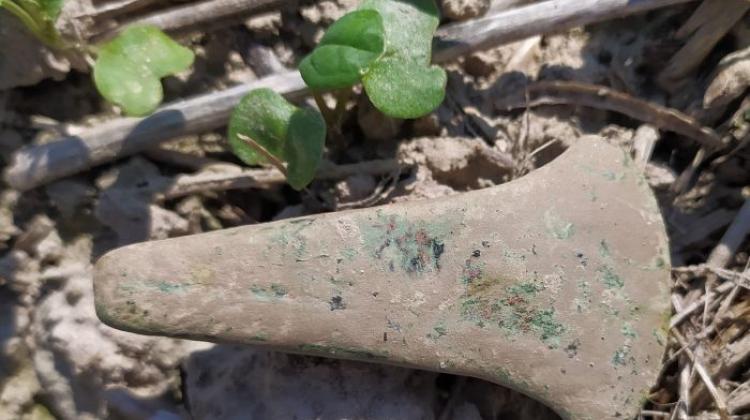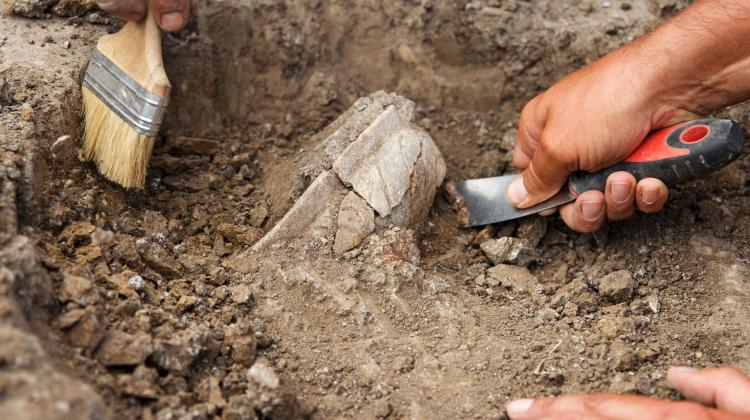Neanderthal ‘traces’ discovered in Poland
Ancient flint tools and traces of flint processing dating back to Neanderthal times have been found by archaeologists in a field in Poland.
The 8,000-year-old discovery in Iłża (Mazowsze) include two flint knives and several dozen chips thought to have been created while making the knives.
Dr. Katarzyna Pyżewicz from the Faculty of Archaeology at the University of Warsaw said: “This might seem unimpressive, but for us, archaeologists, this is a very important discovery. This is one of the northernmost sites in our country, where traces of the presence of Neanderthals have been discovered. The other such site is in Zwoleń.”
The discovery by the Warsaw University and State Archaeological Museum in Warsaw was made during surface research, which according to the researchers, was a valuable place for Neanderthals as a few hundred meters away there is an outcrop of chocolate flint - a raw material used to make the discovered tools.
According to the researchers, it was perfectly suitable for making good quality tools.
Dr. Witold Grudz from the State Archaeological Museum said: “Most of the Neanderthal sites in Poland are in the Kraków-Częstochowa Upland and Lower Silesia. Their tools were found mainly in caves. Traces of their presence are very rarely discovered beyond caves, and especially so far north.”
He added that the time has now come to search for places where humans stayed outside the caves during the Paleolithic (the Old Stone Age).
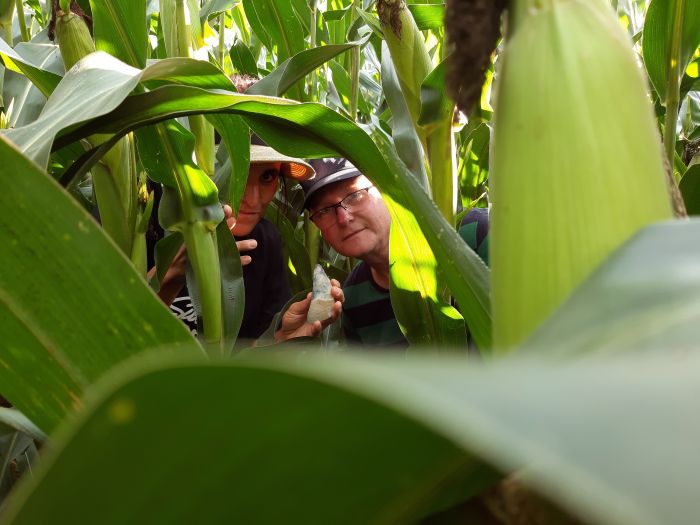
The place in Iłża, where the discovery was made, had been on the researchers' radar for a few dozen years. Preliminary research was done in the area, but the results have never been published. Archaeologists only knew that then there were probably interesting discoveries related to early human history.
The researchers said they wanted to verify the data that they hope to return in the autumn to try and locate a prehistoric camp.
Pyżewicz said: “We also found that modern humans also used flint deposits in this place at a later point, about 30-40 thousand years ago. We found evidence of that in Iłża in the form of specific tools.”
So far, archaeologists know nearly 30 sites from this period in Poland, which is why each new site is very important for the study of history of the first representatives of modern humans in the current territory of Poland.
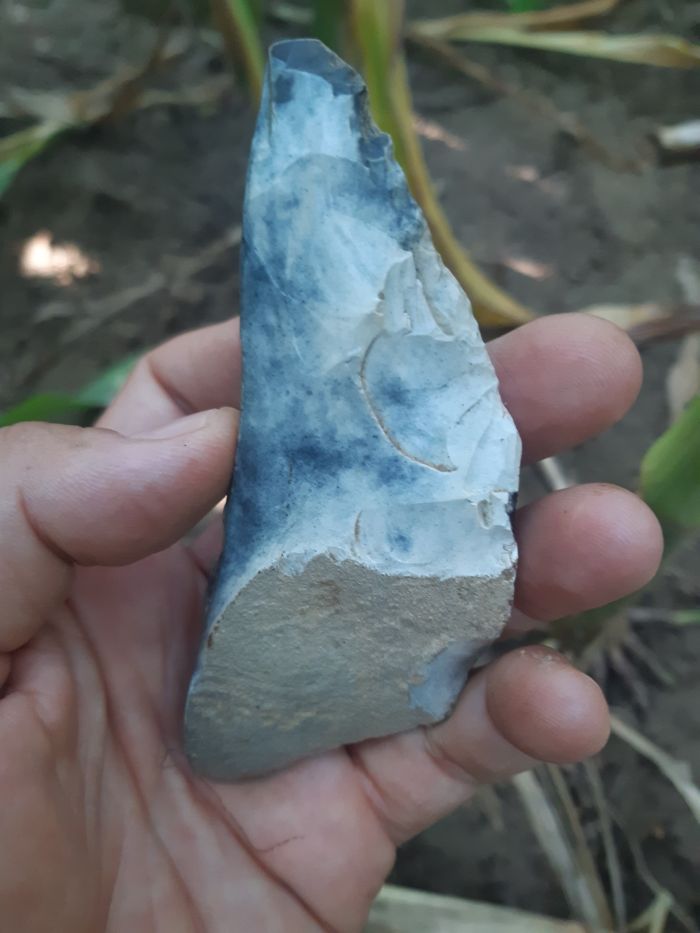
The archaeologists indicate that tools found in Iłża made by modern humans and Neanderthals are different. The latter are more massive.
Pyżewicz said: “This is probably due to the fact that Neanderthals' hands were not as well developed manually, as those of modern humans. However, it can not be ruled out that these [knives - ed. PAP] used by both human species were fixed, for example in wood.”
The place of discovery of prehistoric tools is located on a small elevation over the river Iłżanka. According to the archaeologists, several dozen thousand years ago it offered a good view of the area, which was important for the ancients.
The puzzle for archaeologists is whether modern humans and Neanderthals co-existed in the area of today's Iłża and hope that the excavations will “shed light” on the matter.

Although the Neanderthal belonged to the extinct HomoSapiens and is considered a ‘brother' rather than ancestor of modern human, for a long time they were represented as primitive.
However, recent research indicates that Neanderthals had a lot more in common with modern humans than previously thought. Researchers determined, for example, that Neanderthals were the authors of some of the drawings known from European caves, whose age is estimated at over 64,000 years.
DNA research also shows that modern humans crossed with Neanderthals. The oldest Neanderthal remains identified so far in Poland come from Cave Ciemna and are approx. 115,000 years old.
PAP - Science in Poland, Szymon Zdziebłowski
szz/ zan/ kap/
tr. RL
Przed dodaniem komentarza prosimy o zapoznanie z Regulaminem forum serwisu Nauka w Polsce.



